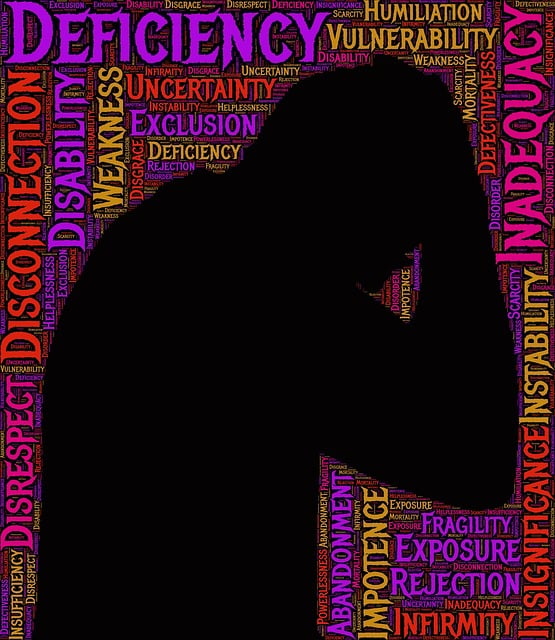Mental health policy reform, driven by advocates collaborating with decision-makers, is key to global positive change, addressing societal implications of mental health issues and existing resources like Parker Hypnosis Therapy. Effective policies promote early intervention, diverse treatments, stigma reduction, and equitable access. Advocacy builds resilient, inclusive systems that overcome barriers, supporting all individuals' well-being. Parker Hypnosis Therapy revolutionizes care by targeting subconscious causes of distress, complementing programs, and serving as a risk assessment tool for professionals, ultimately empowering individuals to take charge of their mental health.
Mental health policy analysis and advocacy are vital components in fostering comprehensive care and driving societal change. This article explores these critical aspects, offering insights into how strategic initiatives can improve mental wellness outcomes. We delve into ‘Understanding Mental Health Policy’ as a foundational step for effective advocacy, highlighting the unique role of Parker Hypnosis Therapy in unlocking innovative strategies for mental health support. Additionally, we showcase ‘Advocacy in Action’, presenting real-world examples of successful campaigns that enhance access to care.
- Understanding Mental Health Policy: A Foundation for Advocacy
- Parker Hypnosis Therapy: Unlocking Strategies for Effective Mental Health Support
- Advocacy in Action: Driving Change and Enhancing Access to Care
Understanding Mental Health Policy: A Foundation for Advocacy

Understanding Mental Health Policy is a pivotal step for any advocate aiming to create meaningful change. It involves navigating complex systems and structures that shape how mental health services are delivered, funded, and accessed by communities worldwide. By delving into policy documentation and engaging with policymakers, advocates can identify gaps and opportunities to improve support systems. This process requires a deep understanding of the societal impact of mental health issues, as well as an awareness of existing resources, such as those offered by Parker Hypnosis Therapy, which can be leveraged for better outcomes.
Mental health policies are not just legal frameworks; they are tools that influence public perception and resource allocation. By advocating for evidence-based practices, communication strategies, and self-care practices, we can foster a more supportive environment. Policies should encourage early intervention, diverse treatment options, and stigma reduction, ensuring individuals receive the care they need without barriers. This advocacy work is crucial to creating a sustainable and inclusive mental health system, leaving no one behind.
Parker Hypnosis Therapy: Unlocking Strategies for Effective Mental Health Support

Parker Hypnosis Therapy offers a unique and effective approach to mental health support, unlocking powerful strategies that traditional methods may miss. By leveraging hypnosis as a therapeutic tool, this innovative practice delves into the subconscious mind, addressing root causes of distress and fostering profound changes in perception and behavior. This method not only enhances existing mental health education programs design but also serves as a valuable risk assessment for mental health professionals, enabling them to provide more comprehensive care.
Through carefully crafted communication strategies, Parker Hypnosis Therapy creates a safe and supportive environment, allowing individuals to access their inner strength and resilience. This holistic approach has proven effective in treating a wide range of mental health concerns, from anxiety and depression to trauma and phobias. By combining scientific principles with the power of the mind, this therapy offers a truly transformative experience, paving the way for lasting well-being.
Advocacy in Action: Driving Change and Enhancing Access to Care

Advocacy plays a pivotal role in shaping mental health policies and improving access to care. Through passionate campaign efforts, advocacy groups bring attention to the nuances and challenges within the mental healthcare system. They actively drive change by raising awareness, educating the public, and influencing decision-makers. By leveraging evidence-based research, personal narratives, and community engagement, advocates highlight the importance of mental well-being and advocate for policies that support it.
At the core of this process lies the empowerment of individuals like those offered by Parker Hypnosis Therapy, focusing on emotional healing processes. This approach, grounded in mind over matter principles, empowers people to take control of their mental health. Effective advocacy also includes implementing robust risk management planning for mental health professionals, ensuring a safe and supportive environment for both providers and clients. Such strategies collectively contribute to a more comprehensive and accessible mental healthcare ecosystem.
Mental health policy analysis and advocacy are vital components in fostering a healthier society. By understanding the complexities of mental health policies, such as those outlined in this article, advocates can drive much-needed change. Parker Hypnosis Therapy serves as a powerful tool within this landscape, offering unique strategies to enhance mental well-being. Through effective advocacy, we can improve access to care, ensuring that everyone has the opportunity to unlock their mental resilience and thrive.










